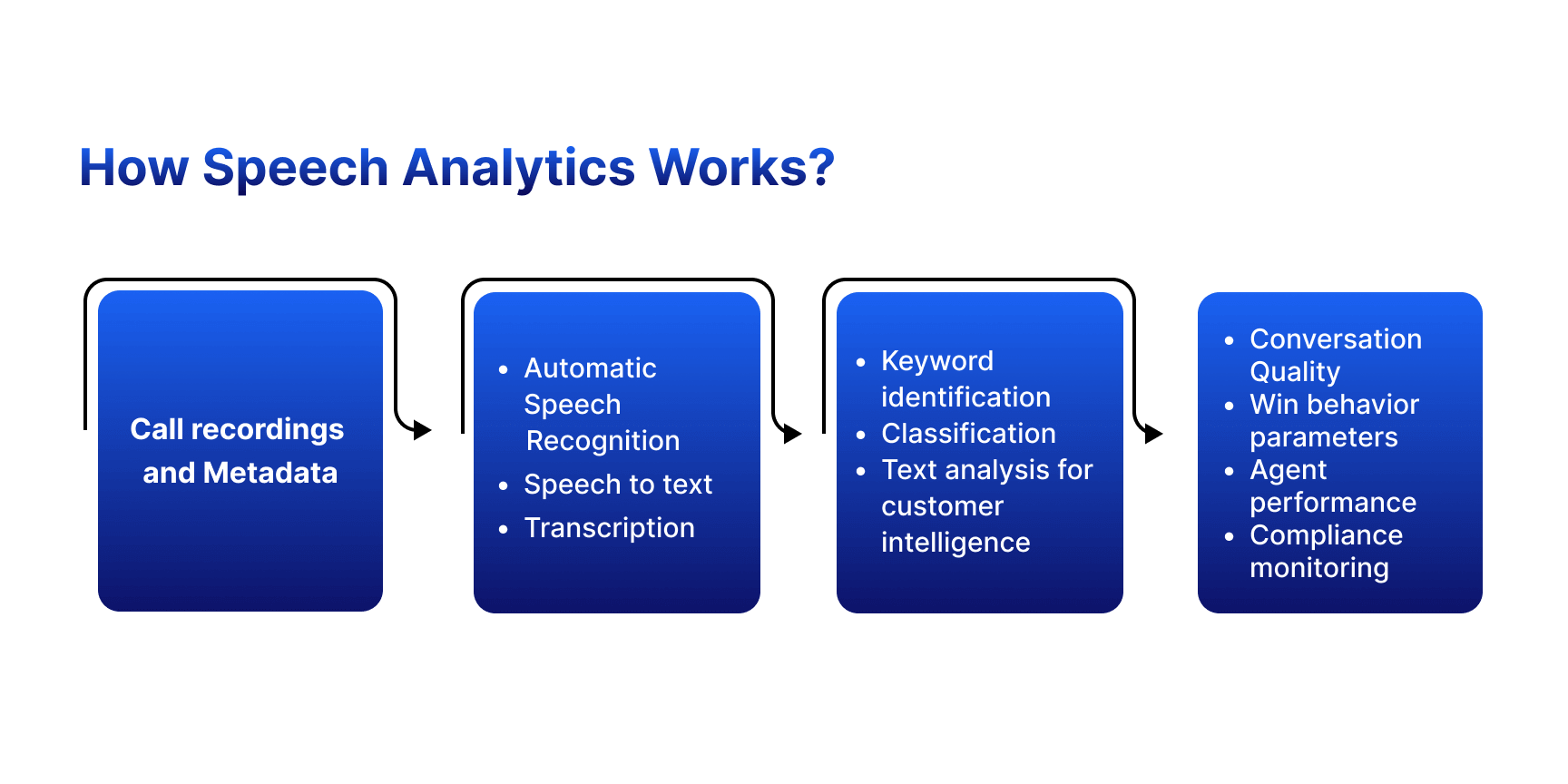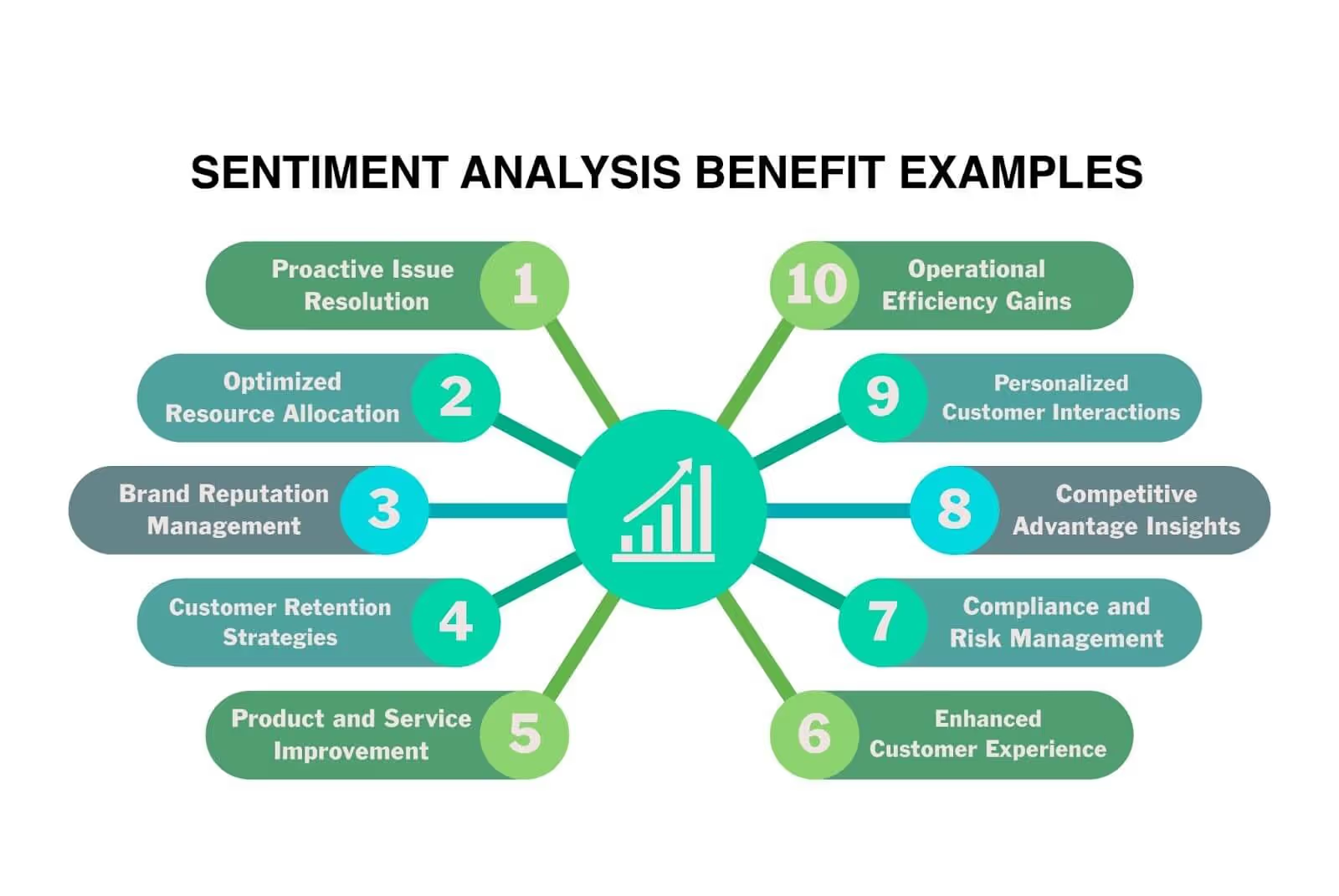In today's data-driven world, businesses are constantly seeking ways to gain insights, make informed decisions, and improve their operations. One area where Business Intelligence (BI) is proving to be increasingly valuable is in contact centers.
This blog will explore why contact centers need BI, how to implement it, the difficulties that may arise during implementation, and the significant benefits and impacts of BI at various levels within a contact center organization.
Explore How Convin’s BI Products can Give your Business a Boost for free!
Let’s Define Business Intelligence BI in Reference to Contact Centers
Business Intelligence meaning in reference to contact centers, refers to the systematic collection, analysis, and utilization of data and information to make informed decisions and enhance the overall performance of a contact center.
BI in contact centers involves using various technologies, tools, and processes to gather and transform data from multiple sources, such as customer interactions, call logs, chat transcripts, and CRM systems, into actionable insights.
Technologies, tools, and processes to gather and transform data. These insights are then used to improve operational efficiency, enhance the customer experience, optimize resource allocation, and make data-driven decisions at both strategic and tactical levels within the contact center.
BI empowers contact center managers, agents, and other stakeholders with the information needed to improve processes, increase customer satisfaction, and achieve organizational goals.
Now that we've clarified the definition of Business Intelligence in reference to contact centers, let's delve into the crucial question: Why do contact centers need Business Intelligence?
Would you like to know more about Convin’s BI Reporting?
Why Do Contact Centers Need Business Intelligence?
Business Intelligence (BI) plays a crucial role in the success of contact centers by providing valuable insights and data-driven decision-making capabilities.
Here's an in-depth exploration of Business Intelligence applications in contact centers
1. Data-Driven Decision Making
BI empowers contact centers with data-driven insights, allowing them to make informed decisions. It transforms raw data into actionable information, enabling contact center managers to optimize operations effectively.
2. Enhanced Customer Experience
By analyzing customer data, BI enables contact centers to gain a deeper understanding of customer behavior, preferences, and needs. This insight allows for the customization of interactions, leading to improved customer satisfaction.
3. Operational Efficiency
BI tools provide real-time monitoring and historical data analysis, which allows contact centers to optimize resource allocation, streamline processes, and reduce operational costs. This leads to greater efficiency in handling customer inquiries.
4. Cost Reduction
BI identifies areas where costs can be reduced, and processes can be streamlined. For example, it can help optimize staffing levels based on call volume trends, reducing unnecessary expenses.
5. Predictive Analytics
BI leverages predictive analytics to forecast call volumes, enabling contact centers to plan for peak times and ensure adequate staffing levels proactively.
6. Quality Assurance
BI assists in monitoring and assessing the quality of customer interactions. By analyzing call recordings and customer feedback, contact centers can identify areas for improvement in agent performance and training.
Suggested Read:- Learn more about the Best QA Software for Contact Centers
7. Personalized Customer Service
BI allows for the segmentation of customers based on their behaviors and preferences. This enables agents to provide personalized solutions and recommendations, enhancing the overall customer experience.
8. Real-time Reporting
BI tools offer real-time reporting capabilities, providing contact center managers with up-to-the-minute insights into key performance metrics. This enables quick responses to changing conditions.
9. Compliance and Security
BI ensures compliance with data protection regulations by monitoring data handling and access. It also helps identify and mitigate security risks related to customer data.

10. Strategic Decision-Making
At the organizational level, BI aids in strategic planning. By analyzing long-term trends and customer insights, contact center leaders can make informed decisions about staffing, technology investments, and customer service strategies.
11. Improved Agent Productivity
Agents benefit from BI by having access to real-time data and insights. This allows them to address customer inquiries more efficiently and provide solutions more effectively.

12. Customer Retention
By understanding customer behavior and addressing their needs proactively, contact centers using BI can improve customer loyalty and retention rates.
Business Intelligence (BI) is indispensable for contact centers in today's data-driven world. It enables data-driven decision-making, enhances the customer experience, improves operational efficiency, and ultimately contributes to cost reduction.
BI is a valuable tool that empowers contact centers to deliver superior service and achieve their organizational goals.
Now that we've established the significance of Business Intelligence for contact centers let's delve into the practical aspects and explore how to implement Business Intelligence in contact center operations effectively.
This blog is just the start.
Unlock the power of Convin’s AI with a live demo.

How to Implement Business Intelligence in Contact Centers?
Implementing Business Intelligence (BI) in contact centers is a strategic process that involves several key steps and considerations to ensure its successful deployment. Below are in-depth points on how to implement BI in contact centers:
1. Define Objectives and Goals
Clearly articulate the specific objectives and goals that BI is intended to achieve within the contact center. This could include improving customer satisfaction, optimizing operations, reducing costs, or enhancing agent performance.
2. Data Collection and Integration
Gather data from various sources relevant to the contact center's operations. This includes customer interactions, call records, chat transcripts, CRM systems, and any other data sources that are pertinent to the objectives.
3. Data Warehousing
Create a centralized data repository or data warehouse where all collected data is stored securely. This ensures data accessibility and scalability for BI tools.
4. Choose BI Tools and Software
- Select the appropriate BI tools and software solutions that align with the contact center's needs and objectives. Consider factors such as data visualization capabilities, scalability, integration with existing systems, and user-friendliness.
- Examples of BI tools include Tableau, Power BI, QlikView, and others.
5. Data Visualization
- Develop interactive dashboards and reports that present data visually and understandably. Data visualization helps users easily comprehend and interpret data, making it more actionable.
- Use charts, graphs, and other graphical representations to illustrate trends, patterns, and key performance indicators (KPIs).
6. Data Analysis and Modeling
- Apply advanced analytics and modeling techniques to the data to uncover insights and patterns that can inform decision-making.
- Use techniques such as data mining, predictive modeling, data modeling in Power BI, and machine learning to identify trends and make future predictions.
7. User Training and Adoption
- Train contact center staff at all levels on how to use BI tools effectively. Ensure that employees are comfortable with the tools and understand their significance.
- Promote a culture of data-driven decision-making within the organization.
8. Data Governance and Security
- Implement robust data governance practices to ensure data quality, accuracy, and compliance with relevant regulations.
- Establish data security protocols to protect sensitive customer information and maintain data privacy.
9. Continuous Monitoring and Improvement
- Real Time monitoring and updating of BI dashboards and reports to reflect changing business needs and objectives.
- Continuously evaluate the impact of BI on contact center operations and make adjustments as necessary.
10. Feedback and Collaboration
- Encourage feedback from contact center agents, managers, and other stakeholders to identify areas for improvement and optimization.
- Foster collaboration between different teams within the contact center to share insights and best practices derived from BI.

Implementing Business Intelligence in contact centers is a dynamic process that requires a strategic approach, commitment to data quality and security, and ongoing optimization. When executed effectively, BI empowers contact centers to make data-driven decisions that lead to improved customer experiences, operational efficiency, and overall success.
Now that we have explored the process of implementing Business Intelligence in contact centers let's delve deeper into the challenges and complexities associated with this endeavor. “What are The Difficulties in Implementing BI in Contact Centers”?
What are The Difficulties in Implementing BI in Contact Centers?
Implementing Business Intelligence (BI) in contact centers can be a transformative endeavor, but it also comes with several challenges that organizations need to address.
Let's delve into the difficulties associated with implementing BI in contact centers.
1. Resistance to Change
Implementing BI tools and processes often requires a shift in the way contact center employees work. Agents, managers, and other staff members may resist adopting BI tools and changing their established workflows. Overcoming this resistance and fostering a culture of data-driven decision-making can be a significant challenge.
2. Cost and Resource Allocation
Deploying BI systems and maintaining them can be resource-intensive in terms of both finances and personnel. Investing in the right BI tools, data infrastructure, and training for employees requires careful budgeting and resource allocation.
3. Security and Compliance Concerns
Contact centers handle sensitive customer data, making data security and compliance with data protection regulations paramount. Implementing BI must be done while ensuring that data is safeguarded and that the organization adheres to relevant privacy and security standards.
4. Data Volume and Scalability
As contact centers continue to collect large volumes of data, scalability becomes an issue. Ensuring that the BI infrastructure can handle increasing data loads and performance demands is an ongoing challenge.
5. Data Silos
Contact centers may have data silos where information is compartmentalized within different departments or systems. Breaking down these silos and ensuring data accessibility across the organization can be a complex task.
6. Skill Gap
Properly utilizing BI tools requires a certain level of expertise. Organizations may need help finding or training employees with the necessary skills to extract meaningful insights from the data and use BI effectively.
7. Data Governance and Ownership
Defining data ownership, governance policies, and responsibilities is crucial for maintaining data integrity. Establishing these frameworks and ensuring adherence can be challenging.
8. Choosing the Right BI Tools
Selecting the most suitable BI tools and software that align with the specific needs and goals of the contact center can be a daunting task. The market offers a wide range of options, and making the right choice is critical.
Implementing Business Intelligence (BI) in contact centers offers numerous benefits, but it comes with its share of difficulties.
Now that we've explored the challenges associated with implementing BI in contact centers, let's shift our focus to understanding the remarkable impact BI can have on contact centers at various levels.
What is The Impact of Business Intelligence on Contact Centers at Different Levels?
Business Intelligence (BI) has a significant impact on contact centers at various organizational levels, empowering them to make data-driven decisions, improve operational efficiency, and enhance the overall customer experience.
1. Agent Level
- Real-time Insights: BI equips agents with real-time information about the customer they are interacting with. This enables them to provide immediate and personalized assistance, resulting in quicker issue resolution and improved customer satisfaction.
- Comprehensive Customer Profiles: BI compiles data from various sources to create comprehensive customer profiles. Agents can access these profiles during interactions, gaining insights into customer preferences, purchase history, and previous interactions, allowing for more personalized service.
- Performance Monitoring: BI tools enable agents to track their own performance metrics, such as call handling times, resolution rates, and customer satisfaction scores. This self-monitoring encourages agents to strive for continuous improvement.
2. Organization Level
- Strategic Decision-Making: At the organizational level, BI provides executives and managers with valuable insights derived from historical and real-time data. This informs strategic decision-making, allowing for the alignment of contact center operations with broader business objectives.
- Cost Management: By analyzing operational data, BI identifies cost-saving opportunities, such as process optimizations and reduced staff turnover. This results in more cost-effective contact center operations.
- Performance Metrics Tracking: BI enables the tracking of KPIs (Key Performance Indicators) at an organizational level, ensuring that performance goals are met and allowing for proactive adjustments when necessary.
3. Customer Level
- Personalized Interactions: BI empowers agents to provide highly personalized interactions based on customer history and preferences. This fosters a sense of valued and loyal customers who are more likely to engage with the contact center repeatedly.
- Proactive Issue Resolution: BI can predict customer issues or needs based on historical data. Contact centers can use this information to proactively address issues or offer solutions, enhancing the overall customer experience.
- Enhanced Customer Satisfaction: BI's ability to improve first-call resolution rates, reduce wait times, and provide tailored service leads to higher levels of customer satisfaction and loyalty.
4. Compliance and Quality Assurance
- Monitoring and Reporting: BI tools can assist contact centers in monitoring and reporting compliance with industry regulations and internal quality assurance standards. This ensures that agents adhere to guidelines and maintain the desired service quality.
- Identifying Training Needs: BI can help identify areas where additional agent training or coaching is required to meet quality and compliance standards.
BI plays a pivotal role in contact centers by enabling agents to provide better customer service, helping organizations make data-driven strategic decisions, optimizing resource allocation, and ultimately enhancing the overall customer experience. It empowers contact centers to be more efficient, effective, and customer-centric, aligning their operations with organizational goals and industry standards.
How does Convin help contact centers Utilize the power of business intelligence?
Convin offers a range of products and solutions designed to assist in setting up Business intelligence (BI) applications for contact centers. These products leverage advanced artificial intelligence and natural language processing technologies to streamline and enhance various aspects of Contact Center operations.
Convin can assist contact centers with business intelligence in the following ways
1. Call and Conversation Analytics
Its primary function is to analyze recorded calls and conversations between agents and customers. By transcribing and analyzing these interactions, valuable data and insights can be extracted.

2. Sentiment Analysis
The tool can analyze the sentiment of customer interactions, helping contact centers understand whether customers are satisfied, frustrated, or neutral during conversations. Sentiment analysis is valuable for assessing customer experiences.

3. Agent Performance Metrics
The tool can evaluate the performance of individual agents by analyzing their interactions with customers. It can identify areas where agents excel and areas that may require improvement.

4. Quality Assurance
Convin can assist in quality assurance processes by identifying best practices and areas for improvement based on fundamental customer interactions.
Convin's suite of AI-powered products and solutions can significantly assist Call Centers in setting up and optimizing BI Teams. These tools enhance operational efficiency, improve customer service, ensure compliance with regulations, and provide valuable insights to support decision-making and agent training.
Be sure to book a free demo today to see firsthand how our products can help!
FAQ
1. What is a business intelligence BI system?
A BI system is a technology-driven solution that gathers, processes, and analyzes data to provide actionable insights for informed decision-making in an organization.
2. What is a BI tool?
A BI tool is software or a platform that facilitates data visualization, reporting, and analysis, enabling users to extract valuable insights from data.
3. Is there math in business intelligence?
Yes, math plays a fundamental role in BI, involving statistical analysis, data modeling, and algorithms to uncover patterns and trends within data.
4. Is data analytics a business intelligence?
Data analytics focuses on examining historical data to conclude, while BI involves the broader process of collecting, analyzing, and visualizing data to support strategic decision-making.
5. What is business intelligence in Power BI?
Power BI is a Microsoft tool for creating interactive data visualizations and reports, making it easier for users to gain insights from their data.
6. What is business intelligence vs analytics?
Business intelligence provides historical and current insights for strategic decisions, while analytics involves deeper data exploration and predictive modeling to drive future actions and outcomes.








.avif)